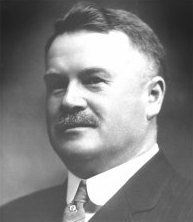
The 17th Legislative Assembly of British Columbia sat from 1929 to 1933. The members were elected in the British Columbia general election held in June 1928. [1] The Conservative Party, led by Simon Fraser Tolmie, formed the government. [2]
Contents
James William Jones served as speaker for the assembly until his resignation in 1930. Jones was replaced by Cyril Francis Davie. [3]
